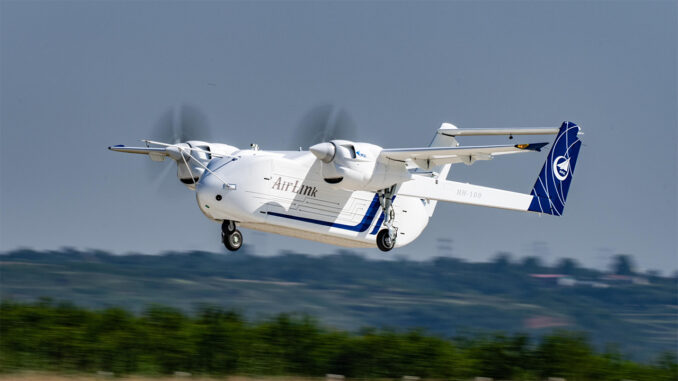China has taken a significant leap in unmanned aerial technology with the successful maiden flight of its latest large twin-engine transport aircraft. The groundbreaking flight took place on Sunday at Zigong Fengming General Airport in Sichuan Province, signaling a major advancement in the nation’s air cargo transportation capabilities.
The aircraft, developed by Sichuan Tengden Sci-tech Innovation Co., Ltd., a leading company in intelligent aerial vehicle research and manufacturing, completed a 20-minute test flight where all systems reportedly functioned normally. This achievement reflects the company’s growing expertise and leadership in the field of unmanned aerial technology.
This new transport aircraft boasts impressive specifications, including a wingspan of 16.1 meters and a height of 4.6 meters. Designed to meet the rising demands of the air cargo market, it offers a substantial cargo space of 12 cubic meters and a commercial payload capacity of up to 2 tonnes. These capabilities position the aircraft as a formidable asset in the logistics sector, particularly within the low-altitude economy.
Engineered with cutting-edge technology, the aircraft features advanced loading and unloading capabilities, ensuring high reliability and safety. Its intelligent systems are designed to optimize performance and operational efficiency, making it a key player in the future of smart logistics.
The successful test flight represents more than just a technological milestone; it marks a significant step forward in enhancing China’s air cargo infrastructure. As the country continues to develop its low-altitude economy, this innovation is expected to play a crucial role in expanding logistics solutions, potentially transforming the way goods are transported across the nation.
China’s commitment to advancing its unmanned aerial capabilities is evident in this latest achievement, reflecting its broader strategy to lead in the global logistics and transportation sectors. As the aircraft moves closer to commercial deployment, it is poised to become a vital component of China’s smart logistics network, contributing to the country’s economic growth and technological prowess.



